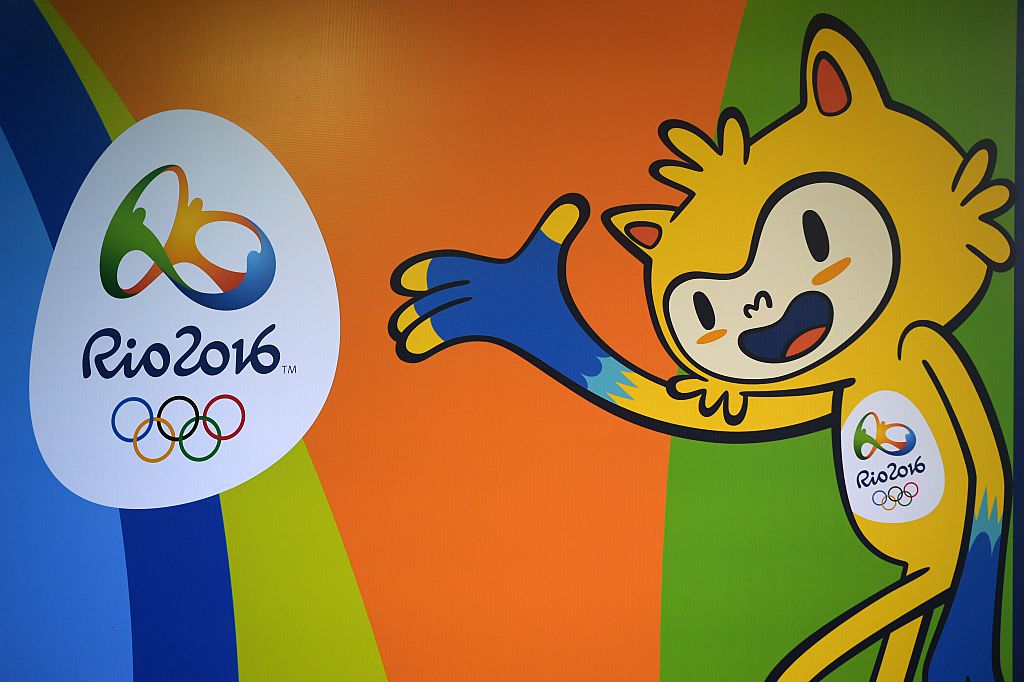Olympic executives live the jet-set lifestyle while athletes hope for functioning toilets


A free daily email with the biggest news stories of the day – and the best features from TheWeek.com
You are now subscribed
Your newsletter sign-up was successful
The presidency of the International Olympic Committee (IOC) is a volunteer position at a nonprofit organization. It also comes with a roughly $250,000 annual stipend and complimentary housing at a five-star Swiss resort.
Meanwhile, Olympic athletes heading to Rio, Brazil, for the games this week find an Olympic village with problems that include "blocked toilets, leaking pipes, exposed wiring, darkened stairwells where no lighting has been installed, and dirty floors." For many, the closest thing to formal compensation will be free clothes.
That disparity is the subject of a detailed Washington Post report and infographic explaining where the money for the Olympics comes from — and where it goes. "The picture that emerges is a multibillion-dollar entertainment industry whose entertainers are [particularly in the United States] often expected to raise their own income or live in poverty," summarizes Post writer Will Hobson.
The Week
Escape your echo chamber. Get the facts behind the news, plus analysis from multiple perspectives.

Sign up for The Week's Free Newsletters
From our morning news briefing to a weekly Good News Newsletter, get the best of The Week delivered directly to your inbox.
From our morning news briefing to a weekly Good News Newsletter, get the best of The Week delivered directly to your inbox.
Perhaps most bizarrely, "some IOC members will get paid more to watch the Olympics ($7,650, depending on travel schedules) than many Team USA athletes will get paid to compete in the Olympics." Hobson quotes one IOC volunteer who worked the 2012 London games recalling unexpectedly lavish accommodations for his gig. "They had a $100-bill-counting machine," he remembered, "and people were standing in line to get their stacks of hundred-dollar bills." The volunteer said money flowed so freely for non-athletes that he went home after the Olympics with an extra $10,000 in cash.
Read the entire analysis at The Washington Post.
A free daily email with the biggest news stories of the day – and the best features from TheWeek.com
Bonnie Kristian was a deputy editor and acting editor-in-chief of TheWeek.com. She is a columnist at Christianity Today and author of Untrustworthy: The Knowledge Crisis Breaking Our Brains, Polluting Our Politics, and Corrupting Christian Community (forthcoming 2022) and A Flexible Faith: Rethinking What It Means to Follow Jesus Today (2018). Her writing has also appeared at Time Magazine, CNN, USA Today, Newsweek, the Los Angeles Times, and The American Conservative, among other outlets.
-
 ‘One Battle After Another’ wins Critics Choice honors
‘One Battle After Another’ wins Critics Choice honorsSpeed Read Paul Thomas Anderson’s latest film, which stars Leonardo DiCaprio, won best picture at the 31st Critics Choice Awards
-
 Son arrested over killing of Rob and Michele Reiner
Son arrested over killing of Rob and Michele ReinerSpeed Read Nick, the 32-year-old son of Hollywood director Rob Reiner, has been booked for the murder of his parents
-
 Rob Reiner, wife dead in ‘apparent homicide’
Rob Reiner, wife dead in ‘apparent homicide’speed read The Reiners, found in their Los Angeles home, ‘had injuries consistent with being stabbed’
-
 Hungary’s Krasznahorkai wins Nobel for literature
Hungary’s Krasznahorkai wins Nobel for literatureSpeed Read László Krasznahorkai is the author of acclaimed novels like ‘The Melancholy of Resistance’ and ‘Satantango’
-
 Primatologist Jane Goodall dies at 91
Primatologist Jane Goodall dies at 91Speed Read She rose to fame following her groundbreaking field research with chimpanzees
-
 Florida erases rainbow crosswalk at Pulse nightclub
Florida erases rainbow crosswalk at Pulse nightclubSpeed Read The colorful crosswalk was outside the former LGBTQ nightclub where 49 people were killed in a 2016 shooting
-
 Trump says Smithsonian too focused on slavery's ills
Trump says Smithsonian too focused on slavery's illsSpeed Read The president would prefer the museum to highlight 'success,' 'brightness' and 'the future'
-
 Trump to host Kennedy Honors for Kiss, Stallone
Trump to host Kennedy Honors for Kiss, StalloneSpeed Read Actor Sylvester Stallone and the glam-rock band Kiss were among those named as this year's inductees



